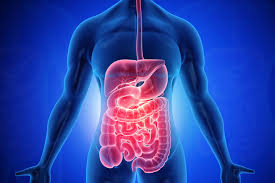The annual celebration of GI Nurses and Associates Week (this year from March 19-25) marks a special milestone this year. The 2023 GI Nurses & Associates Week is the 10th anniversary of honoring nurses in this specialty and all the work they do.
Gastroenterology (GI) nurses specialize in the gastrointestinal tract. Patients who have disorders or symptoms related to the digestive tract will seek out GI specialist teams to help them navigate what can be elusive and sometimes debilitating symptoms.
Nurses interested in this specialty will help patients in many ways. They can assist with upper and lower GI diagnostic procedures and surgeries including endoscopy and colonoscopy, stomach emptying studies, cancer surgery, and more. GI nurses frequently work with patients who have liver and pancreas problems and also with patients who have hernias.
Gastroenterology nurses are an important resource for patients who are managing GI symptoms. As a GI nurse, you’ll be well informed of how varied factors impact a person’s digestive tract.
Food and Diet
You’ll want to help patients with diet to see what might trigger or ease symptoms, what needs to be avoided, and what they might need to add to their diet to help alleviate symptoms. As a GI nurse, you’ll want to be aware of potential food sensitivities or allergies that could be causing problems as well as conditions like celiac disease in which patients can’t tolerate any gluten at all.
Exercise and Motion
Exercise helps GI symptoms in many ways by reducing inflammation, keeping the digestive tract moving, and reducing stress. Nurses in the specialty will have an idea of what to recommend to patients who might need to increase their exercise or moderate an intense exercise routine. Some GI conditions have such severe symptoms that a regular exercise routine might be impossible, so nurses will want to understand how that problem can be balanced in a way that will work for each individual.
Sleep and Rest
Regular, high-quality sleep is good for everyone, but gastroenterology patients are particularly prone to symptom flare ups when they are short on sleep. Nurses are great motivators to help people focus on getting the proper rest to see if it helps any of their symptoms. And GI nurses offer something else that’s just as important for patients to hear–permission to slow down and get rest to help themselves heal. That message alone can be a powerful motivator for some.
Stress and Mental Health
Stress wreaks havoc on a GI system in the best circumstances, but when there’s any kind of disruption or illness, stress or mental health issues can have lasting gastroenterology effects. Having a digestive tract condition is hard enough to manage and that alone can cause stress to raise its head for many patients. Nurses are aware of this and are an important resource to help patients lower their stress levels through various methods like yoga, meditation, or through professional help that might include therapy or medication.
Education and Knowledge
Patients need to be educated and informed about their condition or about procedures that are necessary. GI nurses can listen to a patient’s fears, about nagging symptoms, and about the problems dealing with GI symptoms that can crop up at any time. With more information at their disposal, patients can work out a careful and educated approach to living life with a GI condition.
Gastroenterology nurses work with patients on so many levels and the complexity of the work is both emotional and professional. If you are a GI nurse, take this week to celebrate all you do for your patients!
- Is the FNP Program Right for You? - April 24, 2024
- WOC Nurses Week Highlights Specialty - April 16, 2024
- Honoring Radiology Nurses Day on April 12 - April 12, 2024



